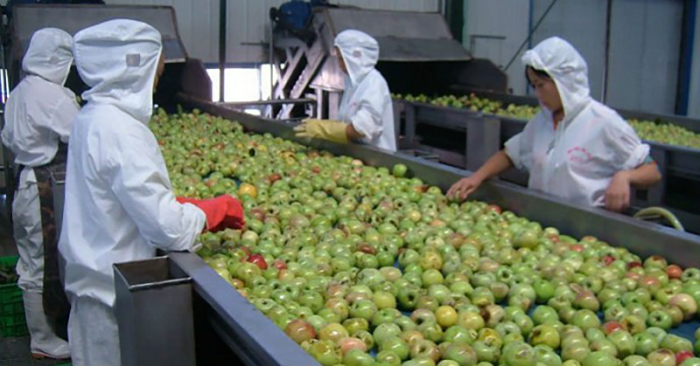The Hidden Dangers From Imported Foods
We import almost 20% of our daily food consumption from other countries, and not all of them use agricultural practices that are considered to be safe. Currently, we get the majority of imports from Canada and Latin America, and these products tend to be considered safe due to the fact that quality can be monitored and regulated more easily. However, we have been seeing a significant increase of imports from China over the past decade, and this should be cause for concern. We can not regulate what is shipped in from China as easily, and test after test reveals the presence of dangerous contaminants in items that ultimately end up in our grocery stores.
Cornering the Market

China is starting to corner the market by being the leading provider of many different food items and food-related products. For example, we get nearly 90% of our vitamin C from China. China also supplies us with about two-thirds of the apple juice we consume each year. We get half of the whitefish, and the majority of tilapia that we eat from fish farms in China. The majority of vitamins and additives or preservatives that we put into processed foods and drinks comes from China. There has also been a sustained increase in candy imports as well as frozen vegetables, and those numbers are expected to rise dramatically over the next few years.
Impossible to Regulate

China is not an open country, despite the fact their economic policies have transformed global trade. The government is riddled with corruption, regulations are virtually non-enforceable, and it is difficult to get boots on the ground to see first-hand where our food comes from and how it’s grown. In a culture where duplicity, counterfeiting, bribery and the misrepresentation of facts is rampant and commonplace, it is not a stretch of the imagination that we’re receiving products from China that do not contain the same ingredients that are on the label.
Additionally, a lot of food that is imported from China is not actually grown in China. That’s right. They outsource a lot of food production to their neighbors, much of which is produced on small, family farms. It is well-known that the unrestricted use of pesticides, fertilizers and even certain genetically-modified seeds are commonly used in order to maximize production. Not only that, but a lot of water that is used for irrigation is contaminated by industrial chemicals.
Government Drops the Ball
Even if we wanted to, we would need a small army to conduct inspections on the ground to really see how our food is being grown. Not only that, but we would also need to rely on governments to be open and transparent during the inspection process. Either option does not seem likely anytime soon. The best we can hope for is that our Customs officials, FDA and other relevant government agencies will test products as they arrive from overseas. In fact, most people assume that the government is monitoring the safety of food products from China and other questionable countries.
The reality is that very few inspections occur, and testing is even more infrequent. It costs a lot of money, in addition to taking a lot of time and resources, to test the authenticity of compounds along with the quality of products. It’s one thing to take a sample of a fish fillet, but another matter entirely to see if the vitamin C or additives and preservatives we’re getting are really legit. Keep in mind that we’re getting food and nutrient shipments from the same country that is consistently getting into trouble for sending us products that are unsafe.
While they do get caught from time to time, the vast majority of items simply go through without being inspected whatsoever. A big part of the problem, aside from a lack of resources, is that the government relies on the honor system and the voluntary inspections by companies in the US to ensure that their products are safe. However, it also doesn’t take a lot of imagination to see why this is also a problem, particularly when companies are being sued right and left for intentionally violating safety regulations in order to maximize profits.
Our entire food inspection system is flawed and largely-ineffective when it comes to making sure that domestic products are really safe to begin with, let alone the imports that flood the market every day. This is one reason why it’s so important to buy organic and domestically-grown products whenever possible. This is a challenge, but it’s also worth the inconvenience as contaminated foods are contributing to an epidemic of disease in this country.
Get quality foods from trusted sources whenever you can, grow what you can, and store what you can for a rainy day. The more control you have over your food supply can play a big role in the overall health and well-being of you and your family. It’s also a good habit to get into so that if we ever face a prolonged crisis or SHTF situation, because you will be in a better position to have a healthy supply of food on hand as well.

